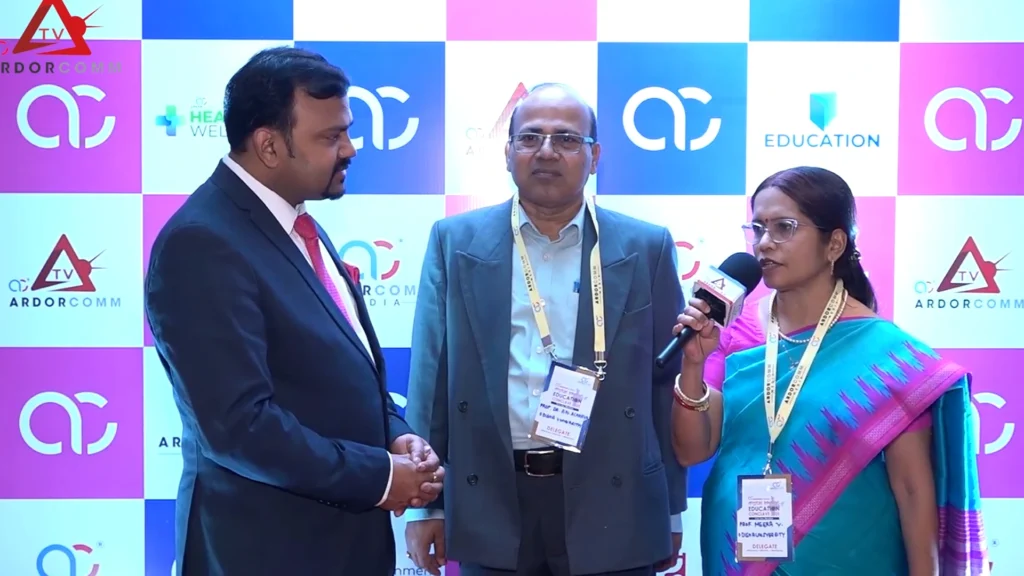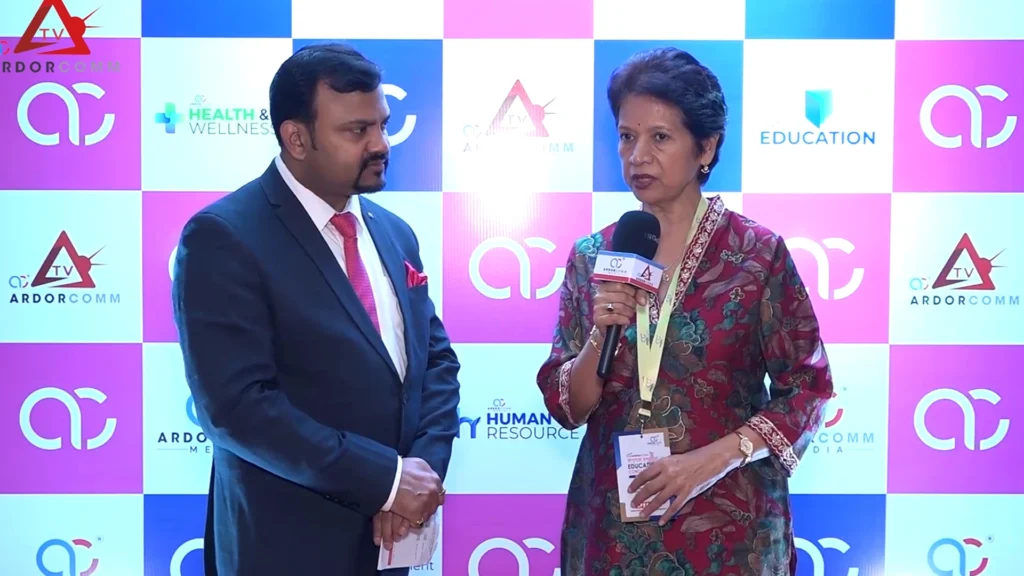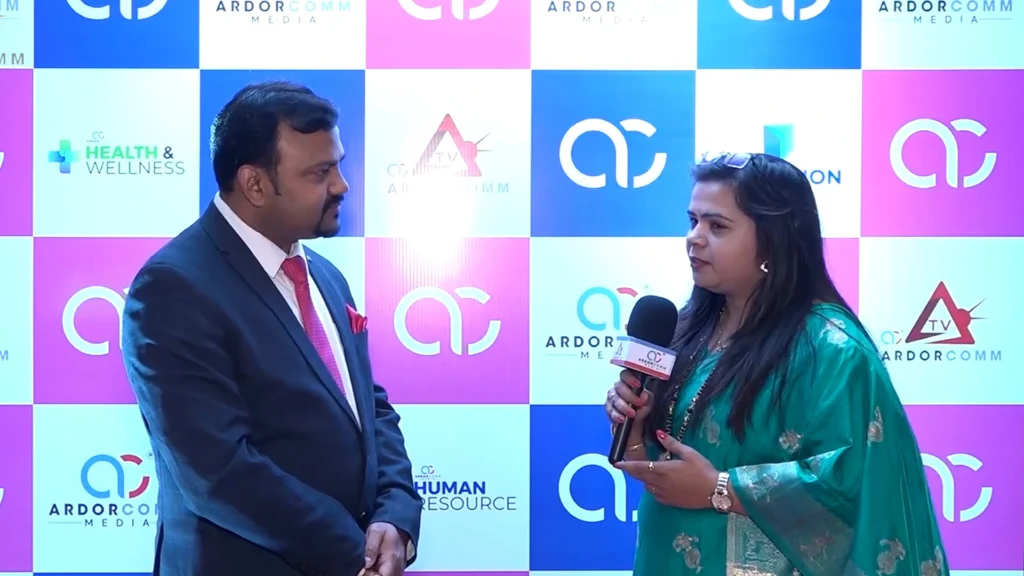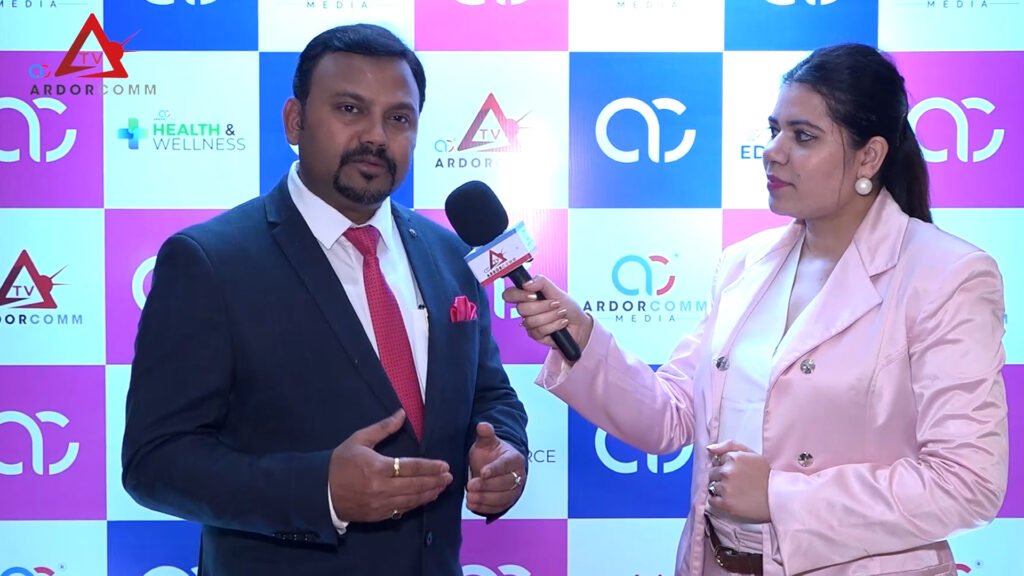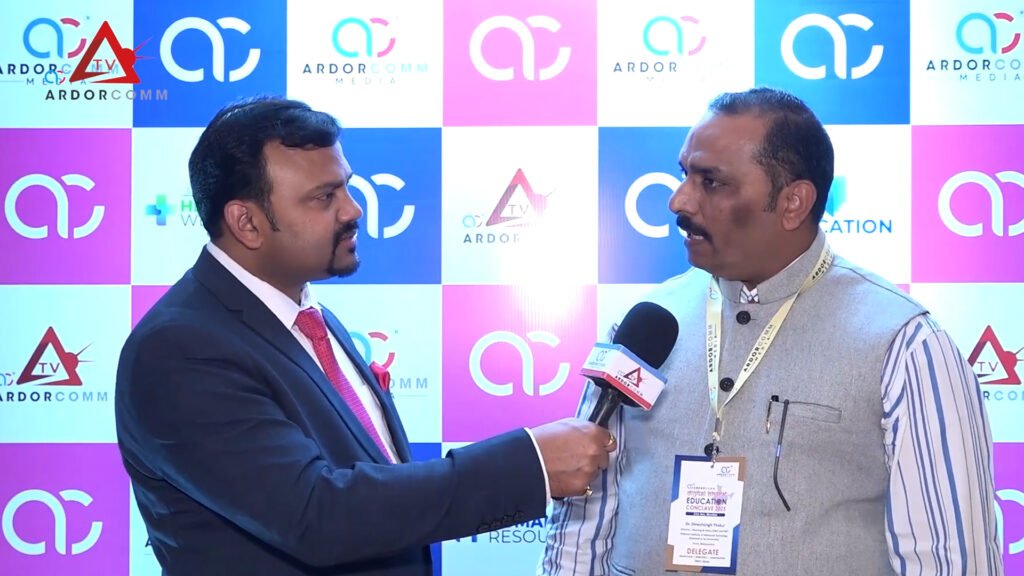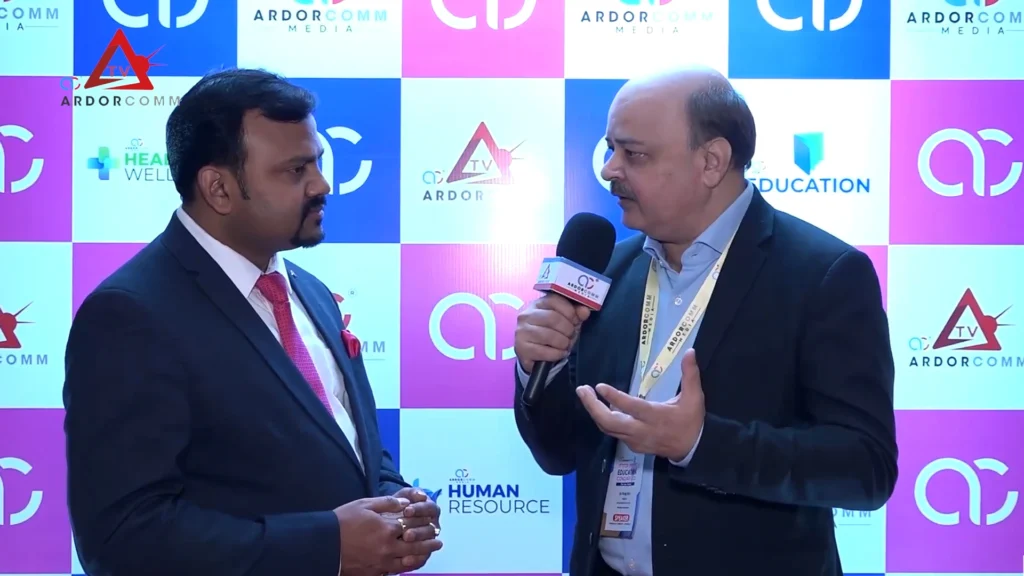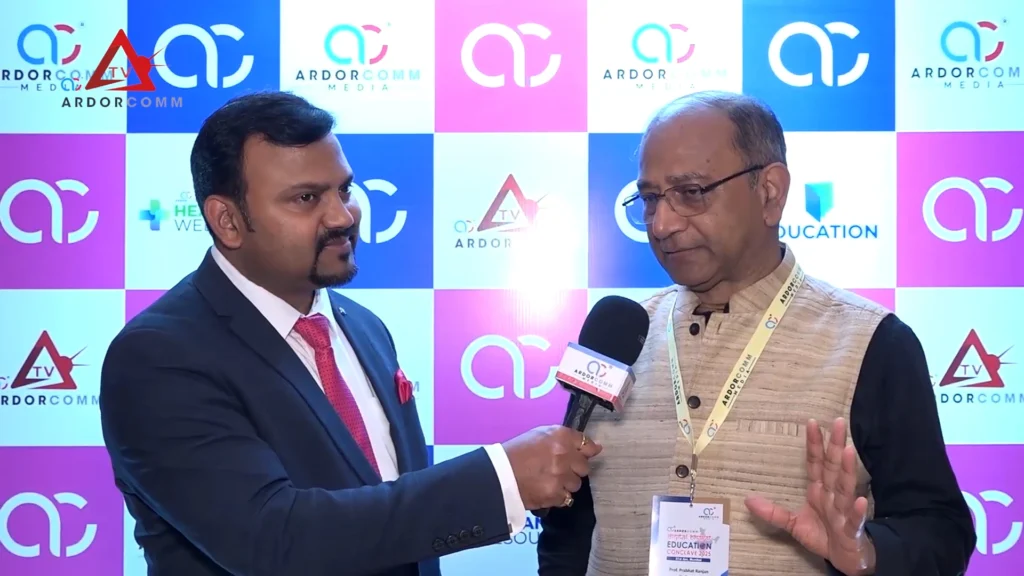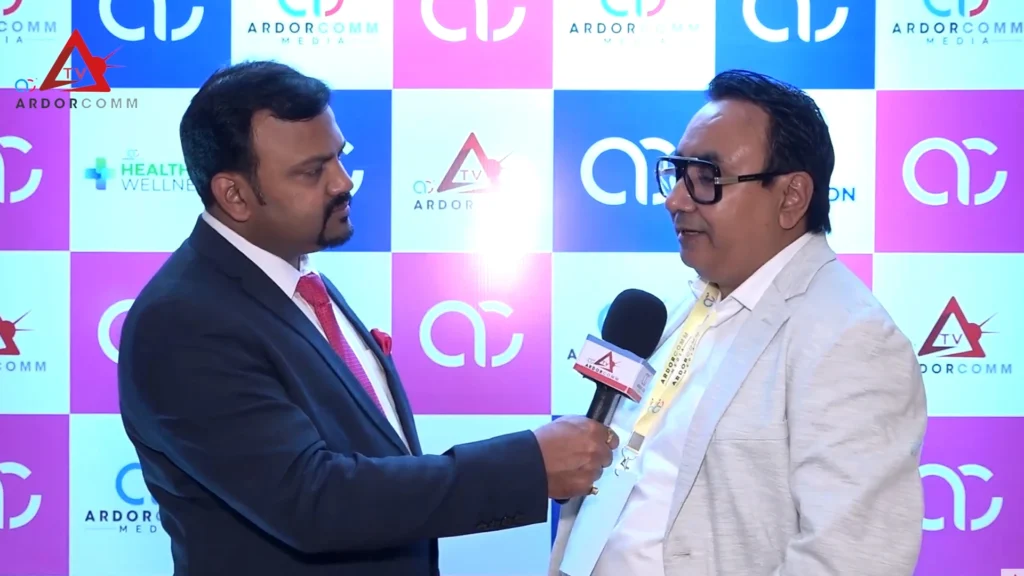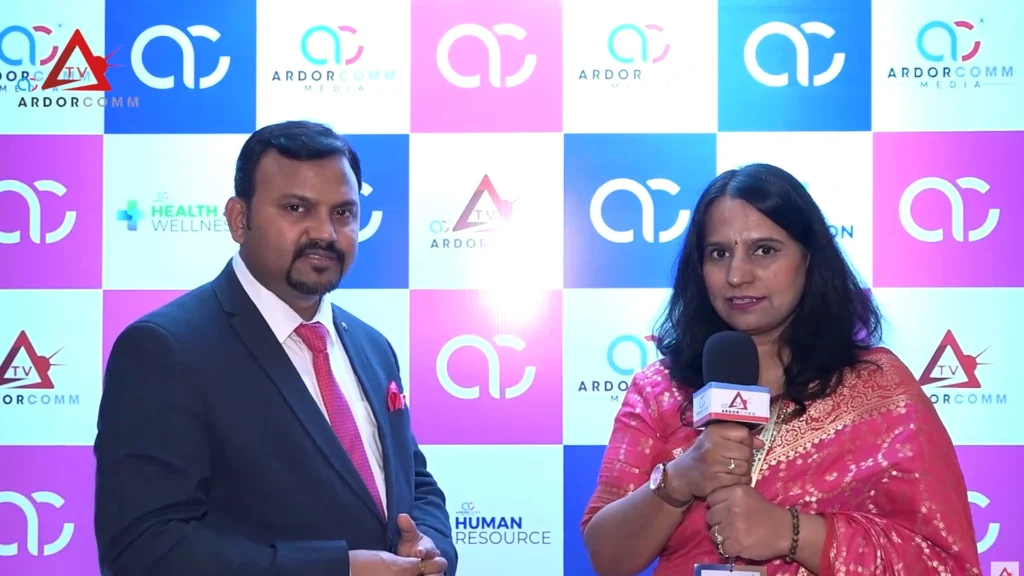Prof. (Dr.) A.N. Acharya expressed her thoughts on multidisciplinary subjects
“The emphasis was on resilience—helping students navigate both success and failure with confidence” said Prof. (Dr.) A.N. Acharya You have witnessed this event since morning. What were the key takeaways from today’s event? A: The takeaway from this event is that a lot of input was given regarding transformative education and how we have to align with the National Education Policy (NEP) 2020. It will help students in their careers and improve teaching-learning processes. Q: Coming to the digital era, what was the learning from today’s event? A: We had wonderful speakers discussing various aspects of education. They spoke about not just collaboration and networking with fellow students and competitors, but also self-development. The emphasis was on resilience—helping students navigate both success and failure with confidence. This will go a long way in character building and preparing them for future challenges. Q: In an era where digitalization is evolving rapidly, what initiatives has your institution taken to bridge the digital divide? A: We have introduced several digital-driven courses, such as: Computer Science Artificial Intelligence & Machine Learning Mechanical Engineering with AI & Robotics Computer Engineering Additionally, we have incorporated Advanced Computing courses in our curriculum and established multiple Centers of Excellence. These centers provide hands-on training with reputed companies like Tech Mahindra, Philips, and others. Students not only gain knowledge of the latest technologies but also get real industry exposure. Our vision is to produce students who are knowledgeable, confident decision-makers, responsible citizens, and problem-solvers. Q: Ma’am, would you like to highlight any special initiatives happening in your institution currently? A: Recently, our institute launched a startup incubator called “Fine – Foundation for Innovation and Entrepreneurship.” It promotes and supports startups by providing a conducive ecosystem. It’s not just for entrepreneurs; our students also learn from this initiative, gaining insights into building startups and innovation. Moreover, each of our departments has specialized clubs, such as: Energy Club (for Electrical Engineering) Robotics Club (for hands-on projects) Students actively participate in national and state-level competitions, including Smart India Hackathons, where they have performed exceptionally well. They have won several awards instituted by reputed institutes like IITs and NITs. Q: ArdorComm Media recently celebrated its third anniversary as a media startup. Would you like to share a message for us? A: Congratulations to ArdorComm Media for organizing such a wonderful event. This platform brings together industry leaders and academia, fostering a collaborative environment. It helps universities showcase their strengths on both national and international levels, attracting students from diverse backgrounds. Our university, one of the largest public universities in Odisha, offers: 15 undergraduate programs (including 13 B.Tech programs, B.Arch, and Bachelor of Planning) 28 M.Tech programs, MSc, MBA, and other multidisciplinary courses We encourage students to select from multidisciplinary subjects, ensuring holistic development. Importantly, students are also members of academic councils and other key committees, enabling them to contribute meaningfully to university decision-making. Q: Any final message for ArdorComm Media? A: First, congratulations once again to ArdorComm Media for successfully bringing together academia and industry. This event fosters a symbiotic relationship, helping both sectors grow together. I wish ArdorComm Media all the best for future events and look forward to continued collaboration in the journey toward success.
Prof. (Dr.) A.N. Acharya expressed her thoughts on multidisciplinary subjects Read More »

